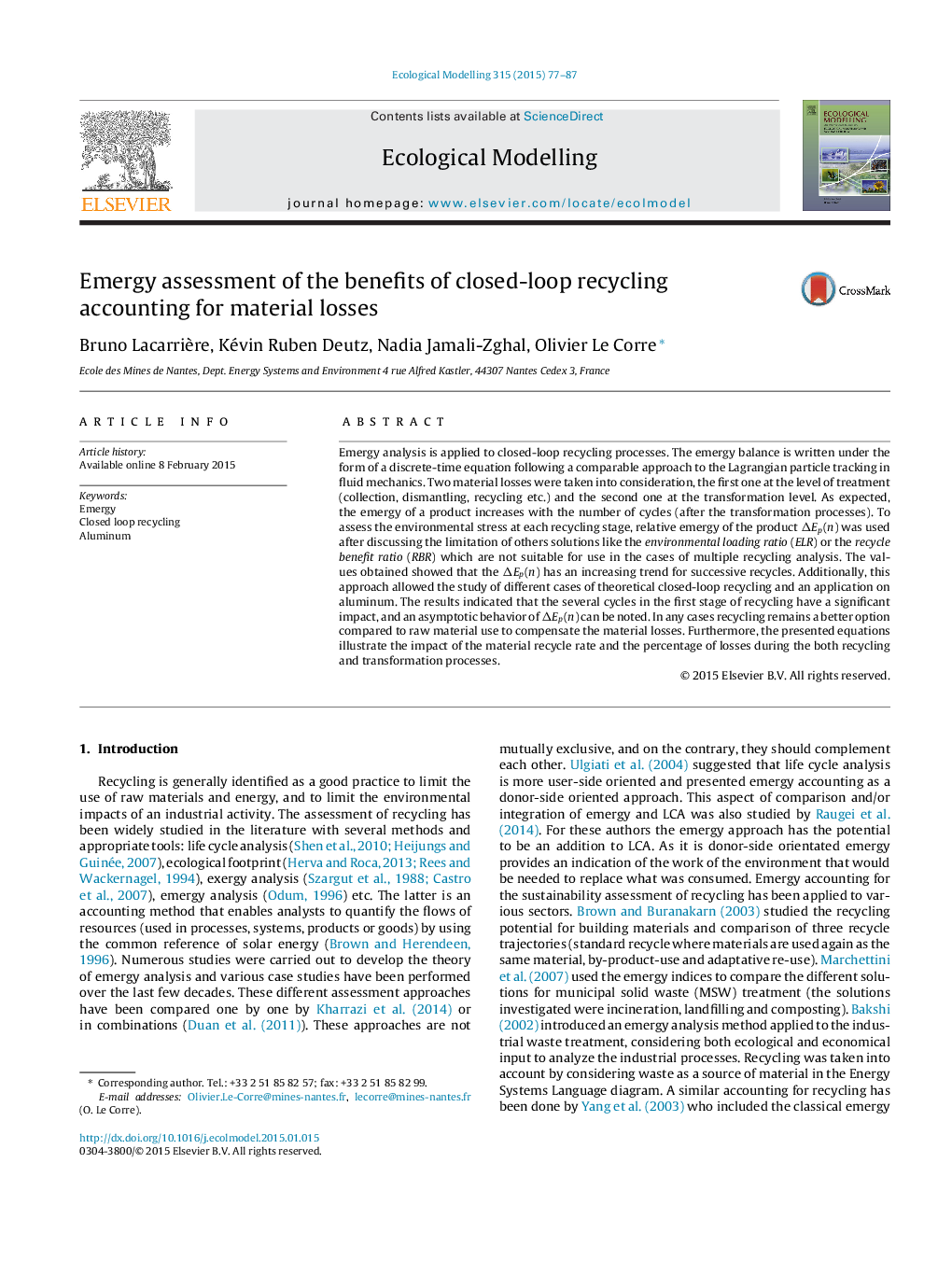| Article ID | Journal | Published Year | Pages | File Type |
|---|---|---|---|---|
| 4375649 | Ecological Modelling | 2015 | 11 Pages |
•We present a method for emergy assessment for closed-loop recycling.•Emergy accounting for mass losses in processes was examined.•General case of reservoir made-up of composite recycling pathways is considered.•This method was applied to show the global shared of recycled and primary aluminum.
Emergy analysis is applied to closed-loop recycling processes. The emergy balance is written under the form of a discrete-time equation following a comparable approach to the Lagrangian particle tracking in fluid mechanics. Two material losses were taken into consideration, the first one at the level of treatment (collection, dismantling, recycling etc.) and the second one at the transformation level. As expected, the emergy of a product increases with the number of cycles (after the transformation processes). To assess the environmental stress at each recycling stage, relative emergy of the product ΔEp(n) was used after discussing the limitation of others solutions like the environmental loading ratio (ELR) or the recycle benefit ratio (RBR) which are not suitable for use in the cases of multiple recycling analysis. The values obtained showed that the ΔEp(n) has an increasing trend for successive recycles. Additionally, this approach allowed the study of different cases of theoretical closed-loop recycling and an application on aluminum. The results indicated that the several cycles in the first stage of recycling have a significant impact, and an asymptotic behavior of ΔEp(n) can be noted. In any cases recycling remains a better option compared to raw material use to compensate the material losses. Furthermore, the presented equations illustrate the impact of the material recycle rate and the percentage of losses during the both recycling and transformation processes.
